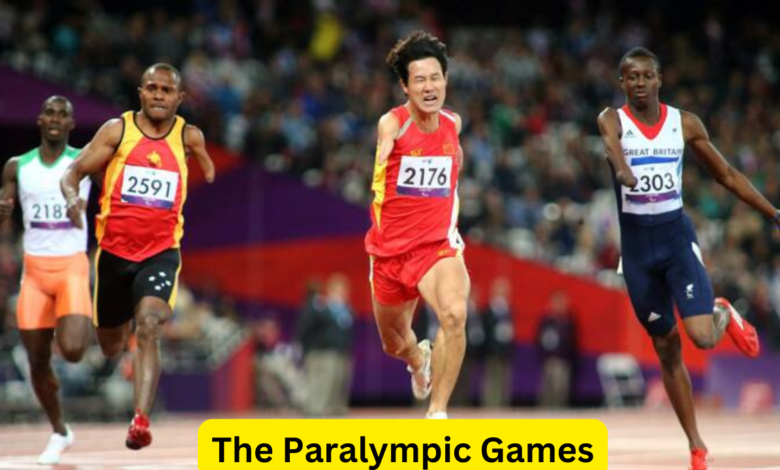The Paralympic Games

The Paralympic Games represent one of the most inspiring and significant events in the world of sports. Held in parallel with the Olympic Games, the Paralympics provide a global stage for athletes with disabilities to showcase their exceptional talents, determination, and resilience. These games are not just about winning medals but also about breaking barriers, challenging perceptions, and promoting inclusivity.
History and Evolution of the Paralympic Games
The Beginnings: From Stoke Mandeville to Rome
The origins of the Paralympic Games can be traced back to the Stoke Mandeville Games, which were organized in 1948 by Dr. Ludwig Guttmann. These games, held in England, were initially a sports competition for British World War II veterans with spinal cord injuries. The first event featured only wheelchair athletes and focused on archery.
The success of the Stoke Mandeville Games led to the idea of an international competition, and in 1960, the first official Paralympic Games were held in Rome, Italy. This event marked the beginning of the modern Paralympic movement, with 400 athletes from 23 countries participating in eight sports. The games have grown exponentially since then, with each edition seeing an increase in the number of athletes, participating countries, and sports.
Growth and Global Impact
The Paralympic Games have evolved into a global phenomenon, attracting thousands of athletes from around the world. The games are now held every four years, immediately following the Olympic Games, and feature a wide range of sports, including athletics, swimming, wheelchair basketball, and more.
The growth of the Paralympics has also led to increased media coverage, sponsorships, and public interest. The games have become a powerful platform for raising awareness about the abilities and achievements of people with disabilities, challenging stereotypes, and promoting equality.
The Spirit of the Paralympic Games
Inclusion and Diversity
At the heart of the Paralympic Games is the principle of inclusion. The games provide a unique opportunity for athletes with various types of disabilities to compete at the highest level, demonstrating that disability is not a barrier to achieving excellence in sports. The Paralympics celebrate diversity, showcasing the incredible range of human abilities and the different ways in which athletes overcome challenges to reach their goals.
Determination and Resilience
The Paralympic Games are a testament to the indomitable human spirit. The athletes who compete in these games have often faced significant physical, emotional, and social challenges, yet they have persevered to reach the pinnacle of their sport. Their stories of determination, hard work, and resilience are a source of inspiration to millions of people around the world.
Breaking Records and Changing Perceptions
The Paralympic Games have seen countless records broken and boundaries pushed. Athletes continually strive to improve their performance, setting new benchmarks in their respective sports. These achievements not only highlight the athleticism of the competitors but also help change perceptions about what people with disabilities can achieve.
The Paralympic Sports: A Diverse Range of Competitions
The Paralympic Games feature a wide variety of sports, each with its own set of rules, classifications, and challenges. Some of the most popular Paralympic sports include:
Athletics
Athletics is one of the most prominent sports in the Paralympic Games, featuring track and field events such as sprints, long-distance running, shot put, and javelin. Athletes are classified based on their disability, ensuring fair competition.
Swimming
Swimming is another major Paralympic sport, with events ranging from freestyle to butterfly. Swimmers with physical, visual, or intellectual disabilities compete in various categories, showcasing their speed, strength, and technique.
Wheelchair Basketball
Wheelchair basketball is a fast-paced and exciting team sport that has become a fan favorite at the Paralympic Games. The sport is played on a standard basketball court, with players maneuvering their wheelchairs with incredible skill and precision.
Goalball
Goalball is a unique Paralympic sport designed specifically for athletes with visual impairments. Teams of three players attempt to score goals by throwing a ball with bells inside it into the opponent’s net. Players rely on their hearing and sense of spatial awareness to defend and score.
Boccia
Boccia is a precision sport similar to bocce, played by athletes with severe physical disabilities. The objective is to throw leather balls as close as possible to a target ball, known as the “jack.” Boccia requires a high level of strategy, concentration, and skill.
The Impact of the Paralympic Games
Raising Awareness and Promoting Social Change
The Paralympic Games have played a crucial role in raising awareness about disability issues and promoting social change. The visibility of Paralympic athletes on the global stage challenges traditional views of disability and demonstrates the potential for people with disabilities to excel in all areas of life.
Inspiring Future Generations
The success and achievements of Paralympic athletes inspire future generations to pursue their dreams, regardless of the obstacles they may face. The games encourage young people with disabilities to get involved in sports, fostering a sense of empowerment and confidence.
Advancing Accessibility and Inclusion
The Paralympic Games have also contributed to advancements in accessibility and inclusion, both in sports and in society at large. The increased focus on creating inclusive environments for athletes has led to improvements in infrastructure, technology, and public attitudes toward people with disabilities.
Looking Ahead: The Future of the Paralympic Games
The future of the Paralympic Games looks bright, with continued growth in participation, media coverage, and public interest. As the games evolve, there will be ongoing efforts to expand opportunities for athletes with disabilities, promote inclusivity, and ensure that the Paralympic movement continues to make a positive impact on society.
The Paralympic Games are more than just a sporting event; they are a celebration of human potential, a platform for social change, and a source of inspiration for millions around the world. As we look forward to the next edition of the games, the legacy of the Paralympics will continue to shape the way we view disability, sports, and the human spirit.




